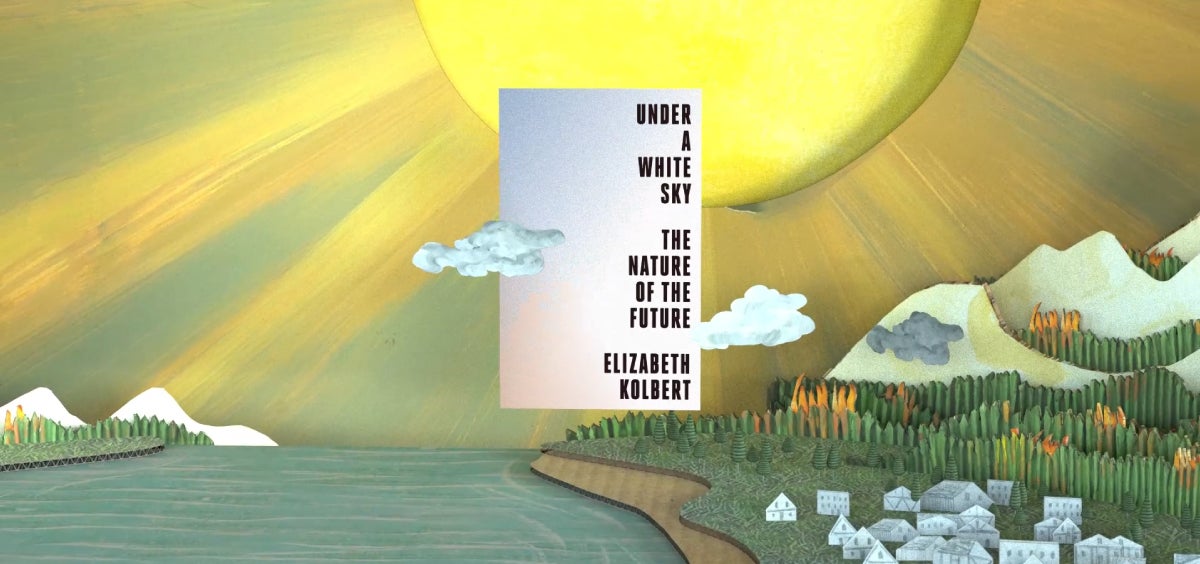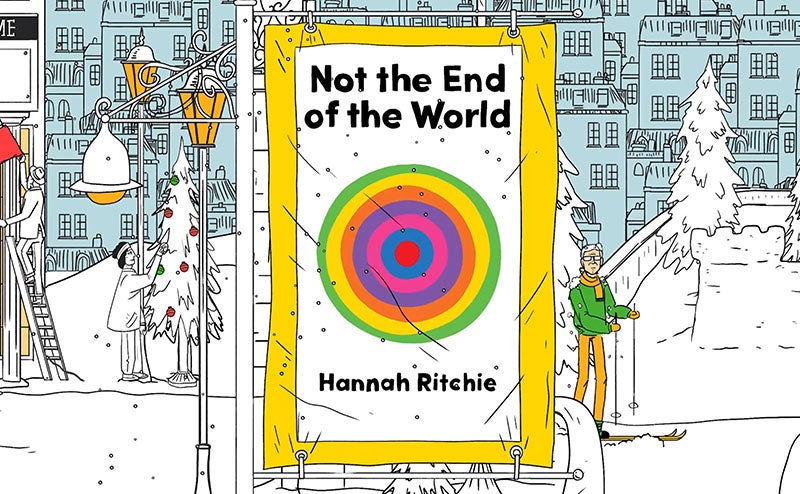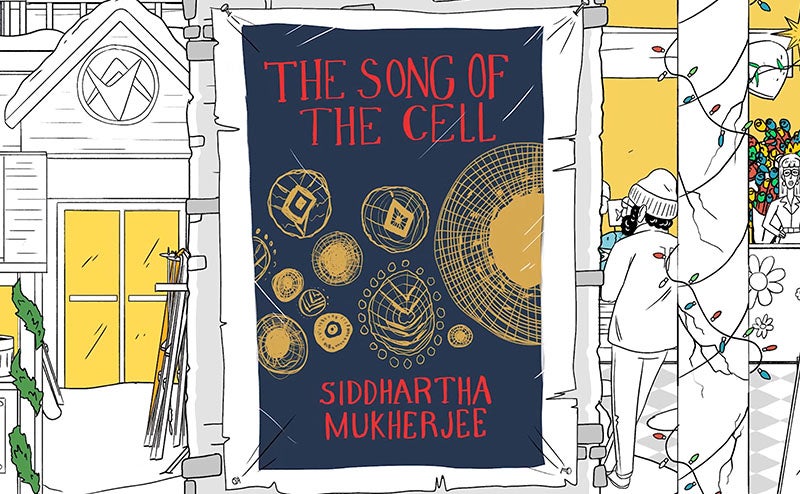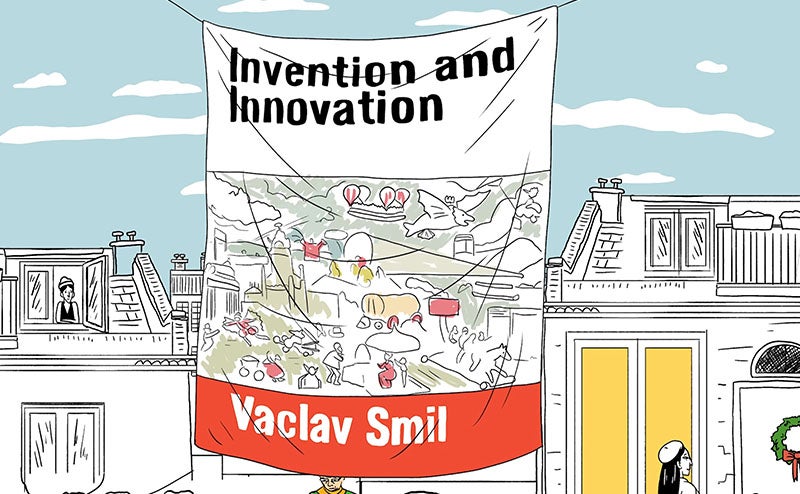Philanthropy, like tennis, demands time and discipline.
The journalist Elizabeth Kolbert has created a fascinating beat for herself. I’m not sure how she would describe the field she covers, but I’d call it something like “humanity’s impact on nature and our attempts to control it.”
That dry description doesn’t really do Elizabeth’s work justice, though. She brings the subject to life with well-told stories, thorough reporting, and portraits of interesting people. I loved her book The Sixth Extinction, which won a Pulitzer Prize in 2015. I read everything she writes in The New Yorker. And I was excited to have her as a guest talking about climate change on the podcast I did with Rashida Jones last year.
So I was looking forward to reading her new book, Under a White Sky: The Nature of the Future, which came out earlier this year. I’m glad I picked it up. Although I have some issues with the book, overall it is a fine example of her work and an insightful look at the role that scientists and engineers play at the intersection of nature and humans.
Under a White Sky is, as Elizabeth writes at the end, “a book about people trying to solve problems caused by people trying to solve problems.” Humans have affected so much of the planet’s land and oceans that we face a future without any precedent, she writes. The challenge for us is no longer just the control of nature—it is “the control of the control of nature.”
For example, the opening chapter is about how wildlife management officials, looking to control invasive aquatic weeds without the use of poisons, introduced Asian carp into a few American rivers in the 1960s. The idea was that the carp would eat the weeds, and they did. But—thanks to the construction of canals that connected the Mississippi and Great Lakes basins—the carp began invading other waterways and causing other problems, including threatening to kill off sport fish in the Great Lakes. So now the Army Corps of Engineers has built an electric barrier to try to keep out the fish that were introduced to keep out the weeds.
Elizabeth covers lots of other topics, including attempts to save coral reefs and to control flooding in southern Louisiana. I was especially interested to read her take on two subjects I’ve studied a lot over the years.
One is a concept known as gene drive. The term covers several approaches, but the basic idea is to use gene editing to rewrite the usual rules of gene inheritance, so that a given parent passes all of its genes on to its children (rather than just half of them). Elizabeth explains how gene drive might be used in Australia to control the invasive, poisonous cane toad—which needs to be controlled because it has spread like mad after being introduced by humans in the 1930s to get rid of a pest that was decimating the country’s sugar cane crops.
The other idea is geoengineering. It’s an umbrella term that describes various ways to lower the planet’s temperature by making temporary changes in the earth’s oceans or atmosphere. Geoengineering is a kind of “Break Glass in Case of Emergency” approach. It wouldn’t absolve us of the responsibility to reduce emissions; it would just buy us time to get our act together in avoiding a climate disaster.
As I’ve come to expect from Elizabeth’s work, she explains gene drive and geoengineering in a compelling and lucid way. You meet interesting people—including David Keith, one of the scientists who educated me on climate years ago and who’s doing some interesting research on geoengineering now. You learn about some of the ripple effects that human interventions can have, and you get a good sense of how scientists and engineers are trying to deal with them.
But the potential side effects of our attempts to control nature are only part of the story. Although it may not seem like it right now, while a pandemic is still going on, the human condition today is better than at any time in the past—and much of the progress is due to human discoveries, inventions, and interventions in nature. Humans created vaccines for COVID-19 decades faster than any vaccine had been invented before. Synthetic fertilizer, better seeds, and farm tools allow us to feed far more people with much less labor than in the past.
I’m glad that smart writers like Elizabeth are reminding us of the risks of trying to intervene in nature. But I wish she had also explored whether the risks are worth taking, or what the alternatives might be.
For example, there are many things we can do about climate change aside from dimming the sun, as I wrote in my book this year. (Geoengineering gets just a few paragraphs out of 230 pages.)
Similarly, gene drive isn’t just for toads. As I explained in this post a couple of years ago, it could be a powerful way to control the species of mosquito that spread malaria. Our foundation is funding some exciting work in this area, and we’re also part of the global conversation about its pros and cons. I’m glad there’s a vigorous debate going on in the global health community about the use of this technology.
I suspect I’m more of an optimist than Elizabeth is. I don’t think it’s inevitable that humans will keep degrading the environment forever. As the standard of living rises, population growth levels off and people start devoting resources to preserving and cleaning up the environment. We’re also developing new ways of understanding the impact we have on nature—including computer models that can predict how mosquito populations will respond to various attempts to kill them off.
Despite these reservations, I still recommend reading Under a White Sky. Elizabeth has a breezy, easy-to-read style, and her book is a good reminder that we need to watch out for the unforeseen effects of our actions. Even though that’s only half the story, it’s an important half.





